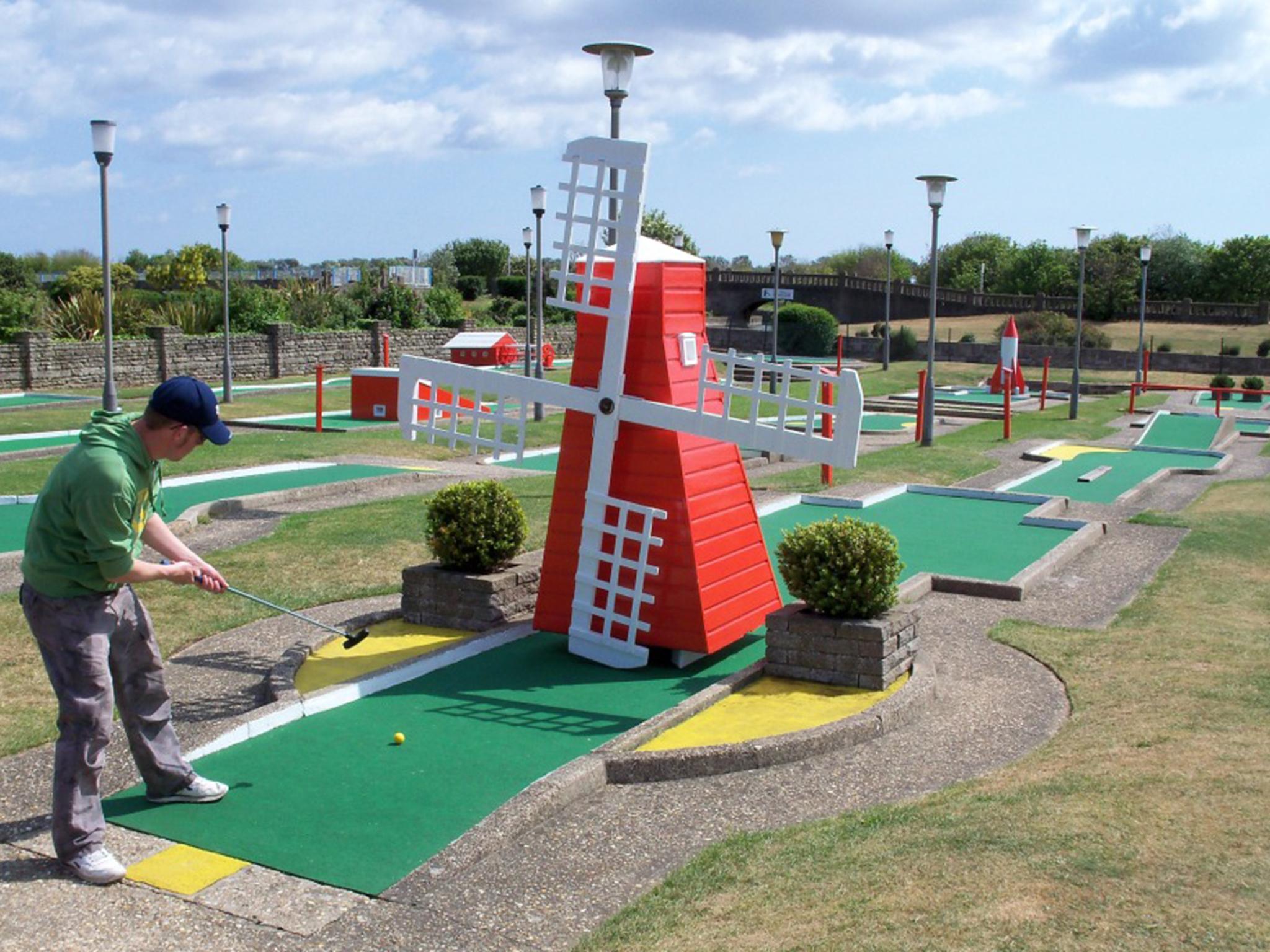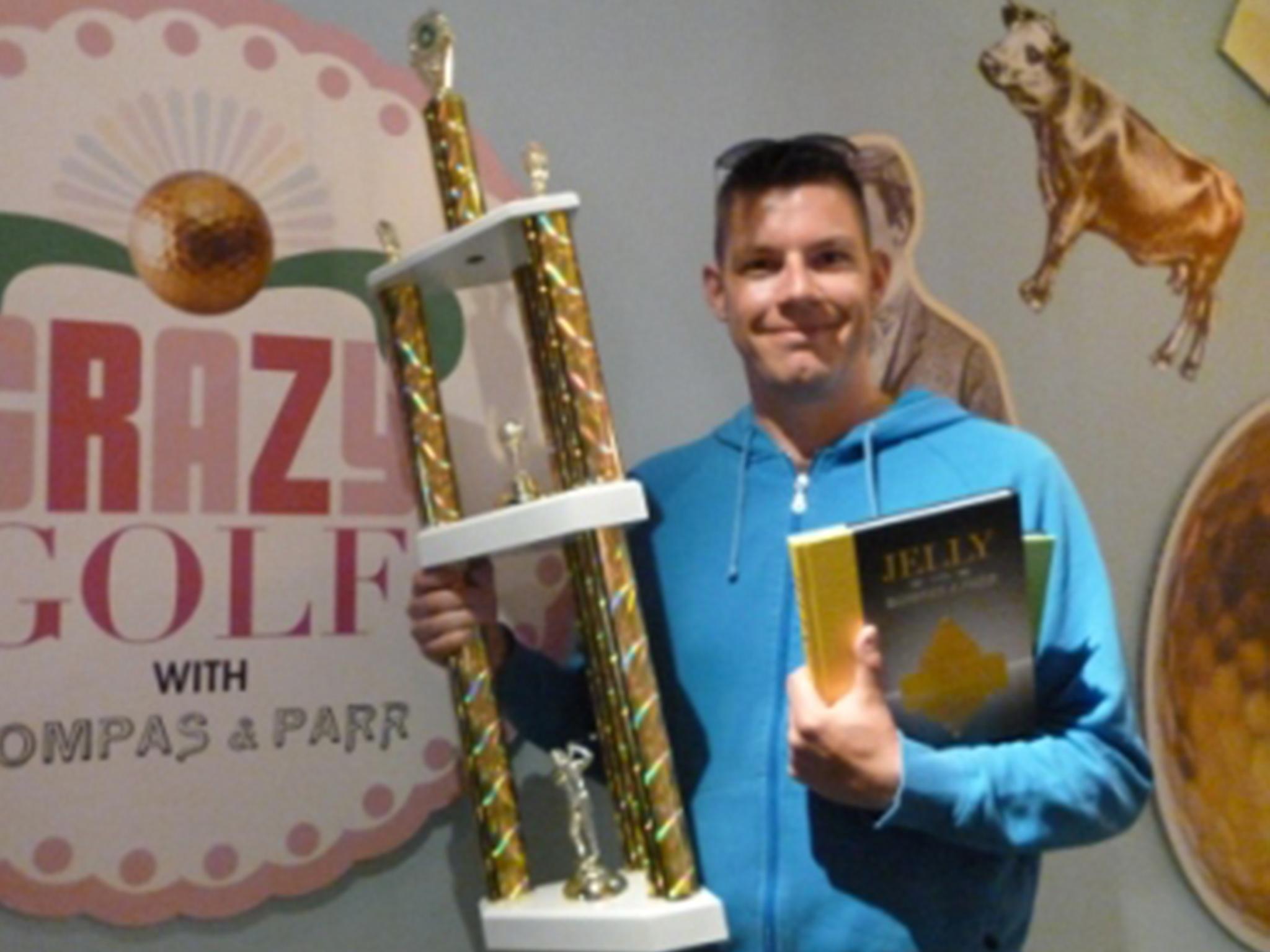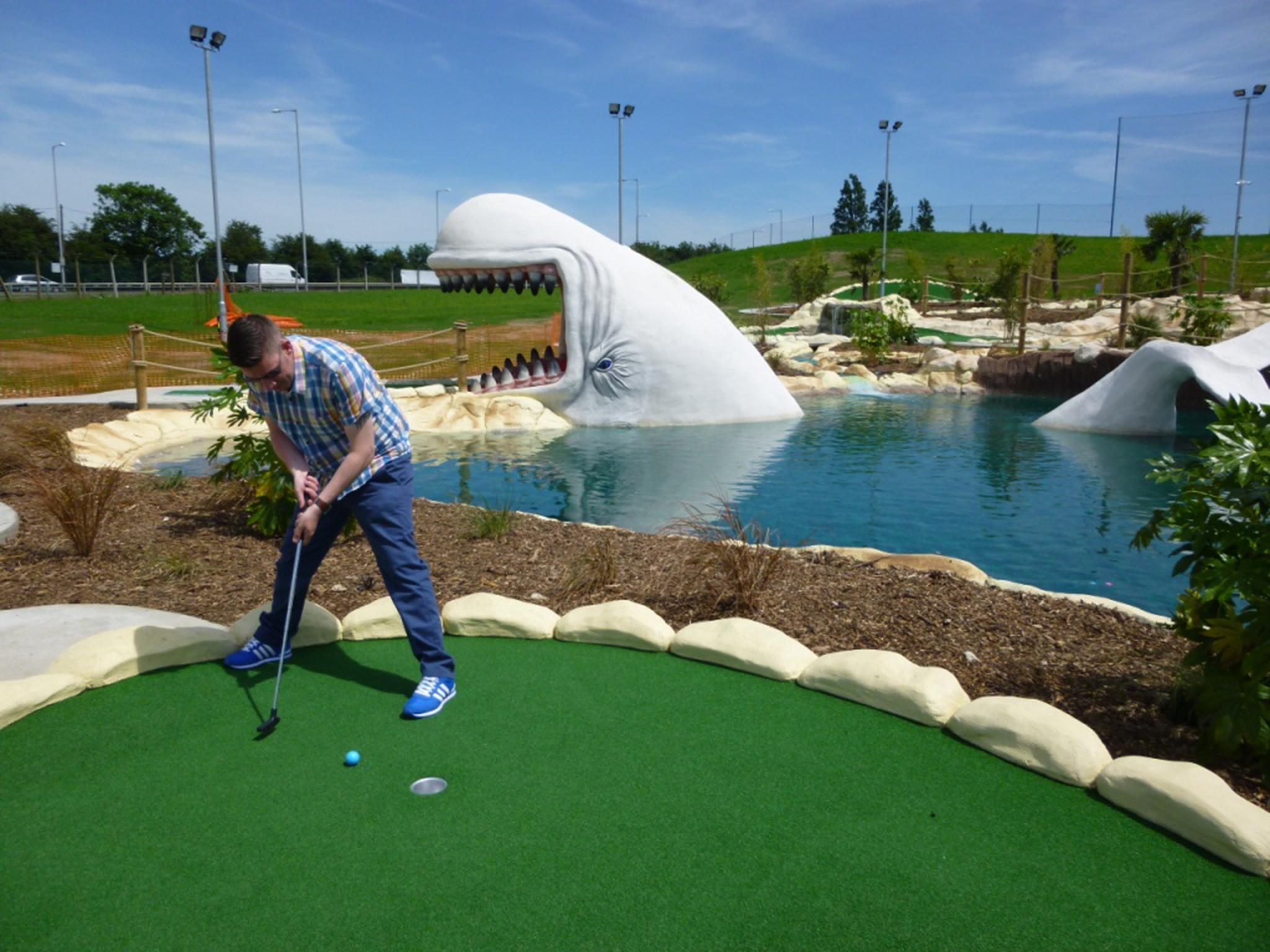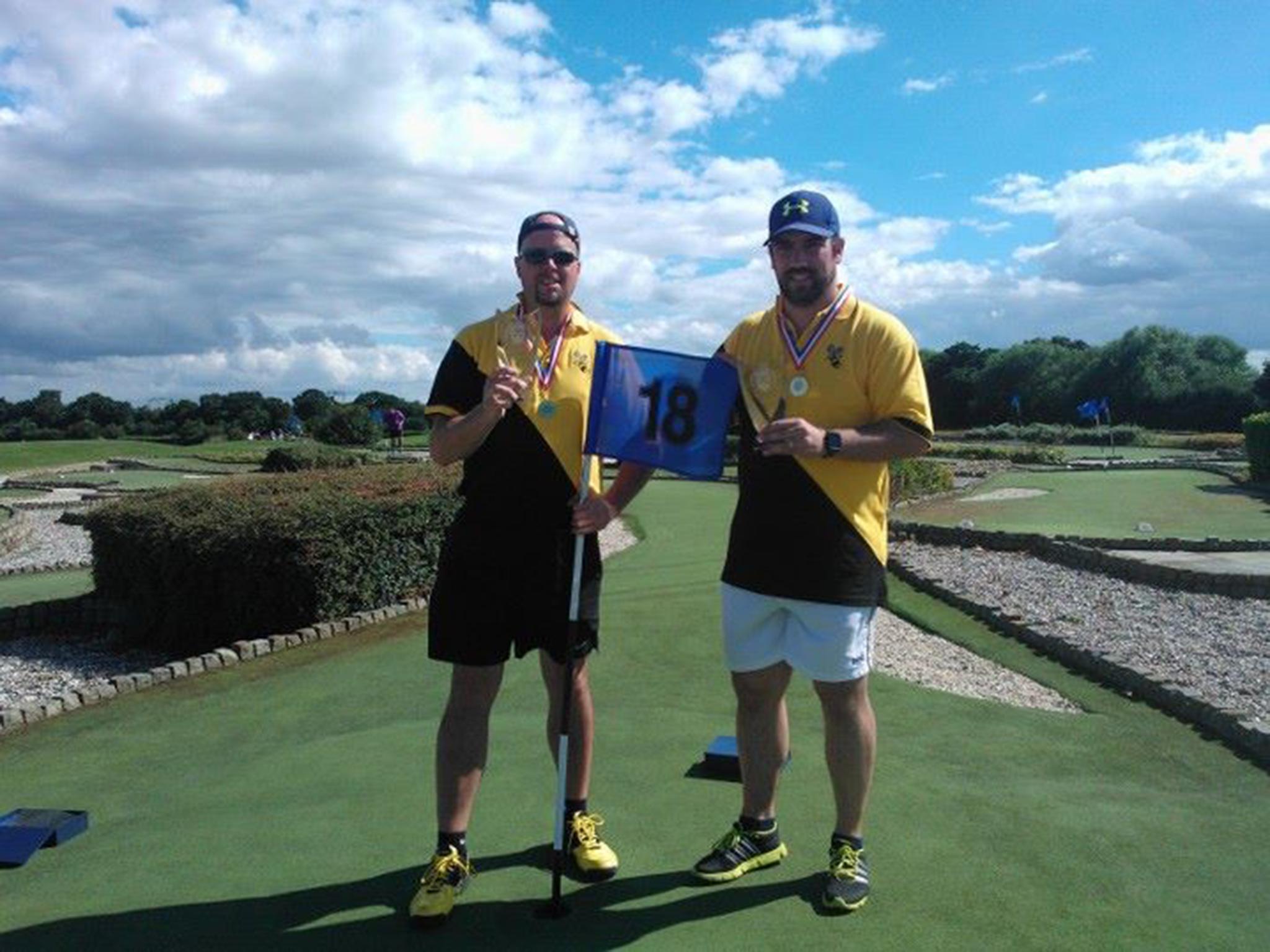'A player once clambered into a duck pond': The fascinating world of competitive mini-golfers
'I once witnessed a player clamber into a pond to retrieve a ball'

Your support helps us to tell the story
From reproductive rights to climate change to Big Tech, The Independent is on the ground when the story is developing. Whether it's investigating the financials of Elon Musk's pro-Trump PAC or producing our latest documentary, 'The A Word', which shines a light on the American women fighting for reproductive rights, we know how important it is to parse out the facts from the messaging.
At such a critical moment in US history, we need reporters on the ground. Your donation allows us to keep sending journalists to speak to both sides of the story.
The Independent is trusted by Americans across the entire political spectrum. And unlike many other quality news outlets, we choose not to lock Americans out of our reporting and analysis with paywalls. We believe quality journalism should be available to everyone, paid for by those who can afford it.
Your support makes all the difference.It takes precision, concentration and nerves of steel. And just because obstacles include giant windmills and the gaping mouth of a plastic whale, it doesn’t make it any easier. Welcome to the world of competitive mini-golfing.
The pastime may seem like a niche throwback from the twentieth century which has surely been swallowed up by social media and the internet, but you’d be wrong – at least according to the British Minigolf Association who estimate around a million people in the UK play the game each years.
The game emerged in the 1910s, and unlike “big” golf – as it’s known among some in the community – players have a range of balls rather than clubs at their disposal, and the distance from tee to cup is usually a handful of yards.
Almost every European nation, as well as the US, Japan, China, India and Taiwan, has an official mini-golf governing body. The biggest bucks are in the US, where tournament winners can rake in thousands of dollars. Even so, rewards are modest and no one has become a professional mini-golfer. (Yet).
Steve Lowell, 42, lives in the market town of Ramsey in Cambridgeshire. By day, he collects soil samples for research. But on the weekends (and the odd free afternoon) he is a force to be reckoned with on the mini-golfing green. This summer he became the British Doubles Champion along with is friend Nuno Cunha.
“I like chatting with the public when I'm at my local course, just trying to show that mini-golf can be more than just a seaside game that the kids do,” he says.
Fellow devotee Richard Gottfried, 36, from Cheadle Hulme in Cheshire works in marketing and has won seven competitions on the National Tour, including two British titles alongside team-mates at the Midlands Minigolf club. 2012 was what Gottfried describes as his vintage year, when he won the Chirzy Golf Masters in Manchester and the Oswestry Games in Shropshire and became the Crazy Golf champion of Selfridge's, winning two tournaments on the rooftop course. Since 2006, he has visited over 700 courses.
The pair chatted to The Independent about the curious world of competitive mini-golfing, feeling like a sports star in Kosovo, and watching other players leap into duck ponds.
How did you get into competitive mini-golf?
SL: I generally give anything a go once. That’s how I got started in mini-golf, along with the combination of alcohol. I had a night out in Brighton in February 2013. On the train back home, I was flicking through social media on my phone when I saw an advert for the British Minigolf Masters in Worthing. The next few hours were a bit of a blur but when I woke up in the morning, I had already filled out the entry form and envelope for posting. I just thought the tournament would be a bit of fun and that would be that.

RG: I got really into mini-golf seriously by accident. On a trip to Southsea to visit my little brother we played the Treasure Island Adventure Golf course. At the end of the nine holes I managed to fire the cannon on the Lucky Last Hole and from that point I was hooked. In the last ten years my wife and I have visited over 700 courses – when we began we'd seen a list that showed around 600 courses, so we've blown that out of the water!

What is your favourite obstacle?
RG: It has to be the windmill. It's such a traditional feature. Seeing oversized and ridiculous obstacles on the miniature holes always looks fun and while some of the older windmill obstacles may not look as interesting as animatronic dinosaurs, they are still tough to play. It's all about timing your shot and knowing the line - as often you'll be playing the hole blind and hoping that you miss the sails.
My top tip is - if you can play around the windmill rather than through it, do!
SL: Angled rocks would probably be my favourite. This is where a mini-golfer becomes a snooker player, looking for rebounds where a direct shot isn't on. A lot of the Florida-style Adventure Golf courses concentrate on the look of the surround rather than surface, for instance, battling galleons with pirates or biplanes in rocks. If it's a challenge to play the course where you have to figure it out, then it is better for your game long term.
What is the most memorable experience you have had while playing mini golf?
RG: I once witnessed a British player clamber into the pond at Hastings Adventure Golf in order to retrieve a mini-golf ball that one of the leading international players had tossed away in disgust at not being able to get a hole-in-one with. Quite what luck the pond diver thought the ball would bring him I don't know!
SL: I made two squads to play in Portugal and Kosovo this year, which were incredible to be a part of. The sponsors of the event in Kosovo paid for our accommodation for four nights and we paraded through the streets for the opening ceremony and for a short while, we felt like professional sportsmen and women. I scraped into the top 18, which qualified me for the super final, which was a real bonus.

Any major downsides to the game?
SL: After a major tournament, like the British Open, World Crazy Golf Championships or an international event, I get withdrawal symptoms for a few days. The drive back after one of these always feels a bit empty, and then you put a wash on when you get in and it just compounds it. For me, it is the only downside to playing.
What is the best way for someone to get started with playing mini-golf?
RG: Head to your local course and have a game. Many towns have a course and there are often pop-up layouts in big cities. The seaside is probably the best way to experience true British Crazy Golf, especially if there's a light drizzle and a bit of a sea breeze.
Join our commenting forum
Join thought-provoking conversations, follow other Independent readers and see their replies
Comments